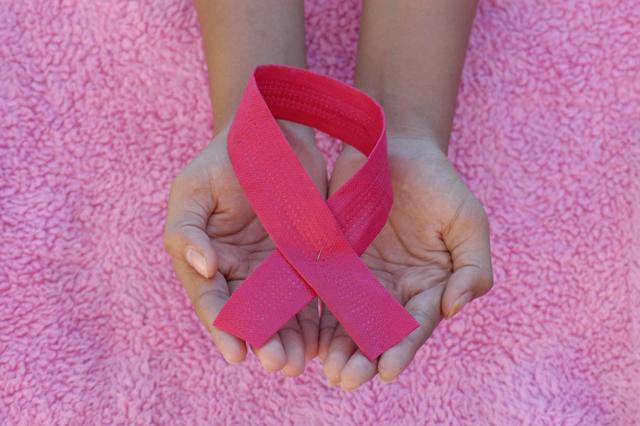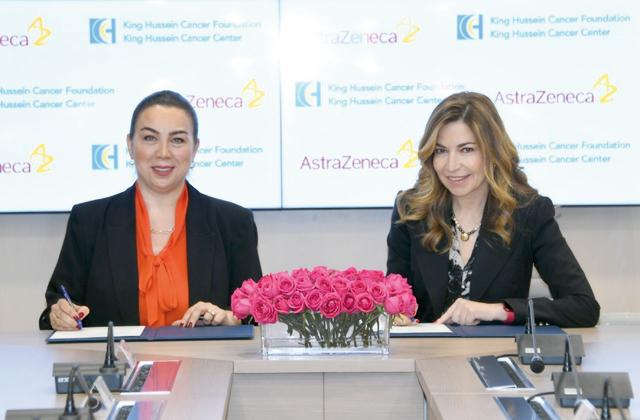You are here
First of its kind study on breast cancer care launched
By Ana V. Ibáñez Prieto - Aug 16,2018 - Last updated at Aug 16,2018
AMMAN — A first-of-its-kind study on the realities of breast cancer care in the Arab region was officially launched in Jordan on Wednesday, during a workshop on cancer care and the ways to tailor the strategies according to available resources.
Conducted by researchers from the Harvard T.H. Chan School of Public Health in collaboration with country experts from Jordan, Saudi Arabia, Kuwait, Oman and the UAE, “Health Systems in Action: Breast Cancer in the Middle East” was the first study in the region to review all aspects of healthcare systems, from access to screening to diagnosis, treatment, follow-up and palliative care.
Launched with the support of the biotech company Roche, the report used publicly available information and research data, with the aim of developing a comprehensive overview of the health systems for breast cancer while providing evidence-based policy options to optimise future breast cancer outcomes.
In Jordan, the analysis was conducted in collaboration with the Ministry of Health, the King Hussein Cancer Centre (KHCC) and Foundation, and the Jordan Breast Cancer Programme.
Rifat Atun, director of global health systems cluster at Harvard T.H. Chan School of Public Health and leading co-author of the report, warned that “despite all the progress made, health care systems in the Middle East are struggling to manage the rising burden of breast cancer”, pointing out that “breast cancer is a major public health issue that affects every country in the Arab region regardless of the specific economic and social context”.
“It is the most common type of cancer for women in the Middle East, representing between 21 per cent and 43 per cent of all female cancers in the countries we studied,” Atun continued.
She told The Jordan Times that “the changes in the demographic structure of the population have increased the number of cancer cases, but the health system has not changed accordingly”, elaborating on how most systems in the region were designed to manage communicable diseases and women’s health issues, but not long term conditions such as cancer.
“We can see the results of this in the way cancer is managed as continued care,” he added, noting that “what the study found is an interruption of management in the different stages, with very well prepared centres such as the KHCC as opposed to a weak primary care”.
Atun called on stakeholders to produce further studies aimed at preparing the system to manage the ageing of the population pyramid, noting that “the data in relation to cancer in the region is rather suboptimal and there is an opportunity to improve data collection system so we can understand the true incidence of the disease instead of relying on estimates”.
He highlighted that “providers are being paid for inputs rather than for achieving outcomes, while they should be paid for achieving value for the money that is invested”, adding that “this requires a shift in the government’s commitment and the way in which they approach cancer”.
The doctor stressed the need to improve the screening and early diagnosis stages, warning that “wide sectors of the population are not well informed and they come late to the system, resulting in a late diagnosis and less chances of survival”.
“But in order to create a real change, what the region should do as a whole is put the focus on individuals, providing the new generations with an education capable of removing the stigma and myths around cancer,” Atun pointed out, adding that “prevention, management and public health interventions to reduce obesity, diabetes and smoking levels are the kind of policies needed in the region”.
For his part, general manager of Roche Middle East commented that “exchanging best practice can help uncover local and region-specific solutions to improve patient care across the Middle East”, expressing Roche’s belief on the study “as an important resource for policymakers and other stakeholders to gain valuable insights and information about the present state of breast cancer care”.
Related Articles
AMMAN — US Ambassador to Jordan Alice G. Wells and newly appointed USAID Mission Director Jim N.
AMMAN — Breast cancer is the most commonly recorded type of cancer in Jordan followed by lung cancer and colorectal cancer, according
AMMAN — HRH Princess Ghida Talal, chairperson of the King Hussein Cancer Foundation (KHCF) and Centre (KHCC) signed a strategic partnership


















